
Cardiff Letting Agent Encourages Landlords To Pursue “Regular Rent Increases”
Landlords were encouraged to give their tenants “regular rent increases” at a Cardiff property investors’ event last week.
On 29th September, amid headlines warning of economic turmoil and further planned benefit cuts – the National Landlord Investment Show arrived at Cardiff City Stadium.
There, landlords attended seminars which offered advice on everything from growing their property portfolios and maximising holiday home profits, to mining cryptocurrency. Here’s a look inside the event.
By Rebecca Wilks
Moginie James: Rent rises, taxes and owning Cardiff
The first talk of the day, by a director at prolific Cardiff letting agent Moginie James, discussed investment opportunities in the capital city.
Assuring his audience that rent prices are increasing “day by day, month by month,” and will “continue to improve”, speaker Adam Jones advised landlords to issue “smaller, regular rent increases” instead of large, more sporadic hikes – a strategy he said would allow their tenants to “manage their finances”.
Large scale developments like Central Square and the arrival of “big, brand-name employers”, Mr Jones said, has seen rents in the city “continue to outperform the rest of Wales”, adding that this trend was likely to continue for 10-15 years.
Referencing claims that forthcoming Welsh housing law changes- the long-delayed Renting Homes (Wales) Act, which introduces new protections for tenants, set to take effect in December – have encouraged landlords to sell up, Jones suggested that this represented an investment opportunity, with remaining landlords able to buy up any homes that come back onto the market.
Mr Jones identified the CF11 postcode – covering Grangetown, Leckwith, Riverside and Pontcanna – as a prime location for charging high rents, noting that the area had seen substantial increases.
CF24, the postcode encompassing Cathays, Roath, Splott, Adamsdown and Tremorfa, was recommended for newer landlords looking to build up a portfolio with relatively cheap homes.
Parts of Splott, Adamsdown, Grangetown, and Riverside rank among the most deprived areas in Wales, according to the Welsh Index of Multiple Deprivation, with at least 55 percent of children in South Riverside growing up in poverty.
Moginie James is planning to expand into Newport, Jones said, where rent prices have been “performing well”. According to the latest available data, nearly a quarter of the city is counted among the ten percent most deprived areas in Wales – the highest concentration of any local authority in the country.
Another key tip offered to landlords in this seminar was to “[minimise] tax exposure” by setting up their own limited companies.
A widespread practice in the UK property market, setting up a property company is a quick and cheap online process which allows landlords to pay the 19 percent corporation tax rate on their takings instead of income tax, which ordinarily ranges between 20-45 percent.
Above: images from the National Landlord Investment Show held in Cardiff
Registering as a limited company also allows landlords to sidestep inheritance tax, land transaction tax – a fee paid when individuals buy a property worth more than £225,000, also known as stamp duty – and capital gains tax, which taxes profits on the sale of an asset.
Holiday Homes
The Investment Show included a session on the advantages of the holiday home business. Wales has seen years of protest over the spread of short-term holiday lets in popular Welsh beauty spots, as locals become increasingly priced out of living in their hometowns. In recent months, the issue has rarely been far from headlines.
Dale Smith, CEO of holiday home management firm Host & Stay, briefly mentioned these protests – also seen in English regions like Cornwall – before moving on to discuss the pros and cons of the industry.
Chief among the benefits of letting out holiday homes, Smith said, is the ability to raise prices much more frequently than with long-term tenants. Claiming that one of Host & Stay’s earliest properties increased its annual earnings from £40,000 to £80,000 in just a handful of years, Smith told his audience that having a standard set of rates for renting out their holiday home would only “hold [landlords] back”.
Outside of peak holiday periods, it was suggested that properties could be listed for short-term rent on sites like Rightmove, with demand likely to remain high.
In May, an analysis by estate agent Hamptons found that 7.3% of house sales in Wales since summer 2021 had been second homes – more than quadruple the UK average of 1.7%.
Becoming a Bitcoin landlord? Cryptocurrency mining
During an afternoon presentation from Easy Cryptohunter, a Manchester-based manufacturer of computer servers used to “mine” cryptocurrency, CEO Josh Riddett listed “tenants” as among the main problems faced by landlords today.
Humans are “a pain in the arse”, Riddett said, suggesting that people should be “removed” from the renting process where possible.
He proposed that landlords buy the servers produced by his firm, install them in their properties, and rent out use of the servers to people looking to mine various cryptocurrencies – Bitcoin and Ethereum among the most well-known examples – with the landlords paid in crypto, which they would then be free to sell for traditional currency.
Mr Riddett claimed that landlords and farmers represented his company’s biggest customers.
“The future [of crypto] is more certain than ever,” He told the audience, implying that, depending on the market, investors could more than double their money each year.
A series of crypto market crashes since May 2021, however, has seen many investors lose thousands.
It was not made clear whether Mr Riddett proposed replacing existing tenants with the servers, though a presentation slide suggested that the computing equipment could be set up in “unused rooms” within a rental property.
It was also unclear which party would pay for the electricity to run the servers.
A notoriously energy-intensive process, the electricity used for mining Bitcoin alone in 2020 well exceeded that used by the entire country of Portugal. It has been estimated that, were the computing networks powering Bitcoin and Ethereum a country, its carbon footprint would rank 41st in the world.
Mr Riddett did not explain how his proposal might impact on energy demands in Wales.
Monitoring mould
“Remember that you are not just looking to protect the resident, you are looking to protect your property,” remarked the presenter of Safer, Healthier Homes, a seminar which largely centred on marketing the products of alarm and sensor company Aico Ltd.
Cutting off disrepair complaints at the pass was a consistent theme at the Investment Show, and Aico posited that their products – tamper-proof sensors constantly monitoring temperature and humidity levels within a home – could help landlords demonstrate that common issues like mould and poor air quality are the fault of their tenants’ behaviour, with the landlords alerted if a tenant takes the sensors down.
“If you do have a resident that is complaining about a damp and mould issue, or disrepair, or air quality and bad ventilation, you can go – ‘well actually we have these sensors in the house, and we can see with all of this information that it is your behaviour which is the problem, and not the building itself,’” speaker Andy Sturgess said.
“But if it is a structural issue, you know about it and can fix it before they can make a claim against you.”
Rent control and destroying cities
One of the final and perhaps busiest sessions of the day – discussing incoming new Welsh housing law and Plaid Cymru’s cooperation deal with the Welsh Government – was delivered by Douglas Haig, a prolific Cardiff landlord and director of the National Residential Landlords’ Association (NRLA) in Wales.
Visibly frustrated, Mr Haig noted that parts of the Renting Homes (Wales) Act have not yet been laid in the Senedd, despite the law being due to take effect in December, and said that clear information from the government about the transition had not been forthcoming.
On new Fitness For Human Habitation rules – which set a minimum legal safety standard for privately rented properties – he expressed support, but said he was concerned that landlords would be opened up to increased disrepair claims.
He warned that Plaid Cymru – a party that he described as “less positive toward landlords than even Labour” – was having a “genuine” influence on government policy, pointing to tightening restrictions on holiday homes and the prospect of rent controls in Wales.
“[Rent controls are] gaining traction – you see rent pressure zones in Scotland, and we follow a lot of what Scotland does in Wales – and obviously the cost-of-living crisis has really exacerbated the pressures,” Haig said.
“We are fighting back very hard on it.”
Flashing up a quote from Swedish neoliberal economist Assar Lindbeck, which likened rent controls – caps on the amount a landlord can charge in rent – to a bomb in their ability to “destroy” cities, Mr Haig told the audience that the NRLA is investing in research to argue against the policy being rolled out in Wales.
Assar Lindbeck, a firm believer in deregulation, also pioneered the idea of the “self-destructive welfare state”, which argued that government welfare that is too generous creates dependency, damaging work ethics and other social norms.
Haig went on: “It preserves cheap rents for an elite class of people, and then excludes everybody else – and it also reduces confidence in the market, and reduces quality and reinvestment in the market.”
Rent prices, he said, had closely aligned with the rate of inflation until more recently – and therefore were not “out of control” as claimed.
This was a claim also made in a separate talk – Investing During a Time of Stagflation – by Reece Mennie, the CEO of HJ Collections, which converts office buildings into flats.
Calling talk of unaffordable rents “scaremongering”, Mr Mennie added: “Rents are going up, but [in our buildings] we’re seeing 90-95% occupancy at all times, so we don’t have any problems with that.
“The cost-of-living is going up, the cost of everything is going up, so ultimately, rent does need to go up – rent has to continue going up to fall in line [with inflation], for us to continue to make the profit that we need.”
Wages in Wales and across the UK, however, have failed to keep pace with inflation – a measure of living costs – for some time. The Trades Union Congress estimates that nurses’ real-terms pay is now down by £4,300 compared with 2010, and paramedic pay is down by £5,600.
Workers in industries including railways, the post service, and BT call centres have gone on strike in recent months over below-inflation pay rises, and more are expected during the winter.
The Landlord Investment show culminates in London next month, where talks will include “Overcoming challenges in a property market crash – How to navigate through skyrocketing inflation, rising interest rates and the cost of living crisis,” “2023 Investment Opportunities for Landlords” and “Investing in the North East for high returns and capital appreciation”.
The North East of England has the highest child poverty rate in the UK at 38%, and has among the highest deprivation rates in the country too.

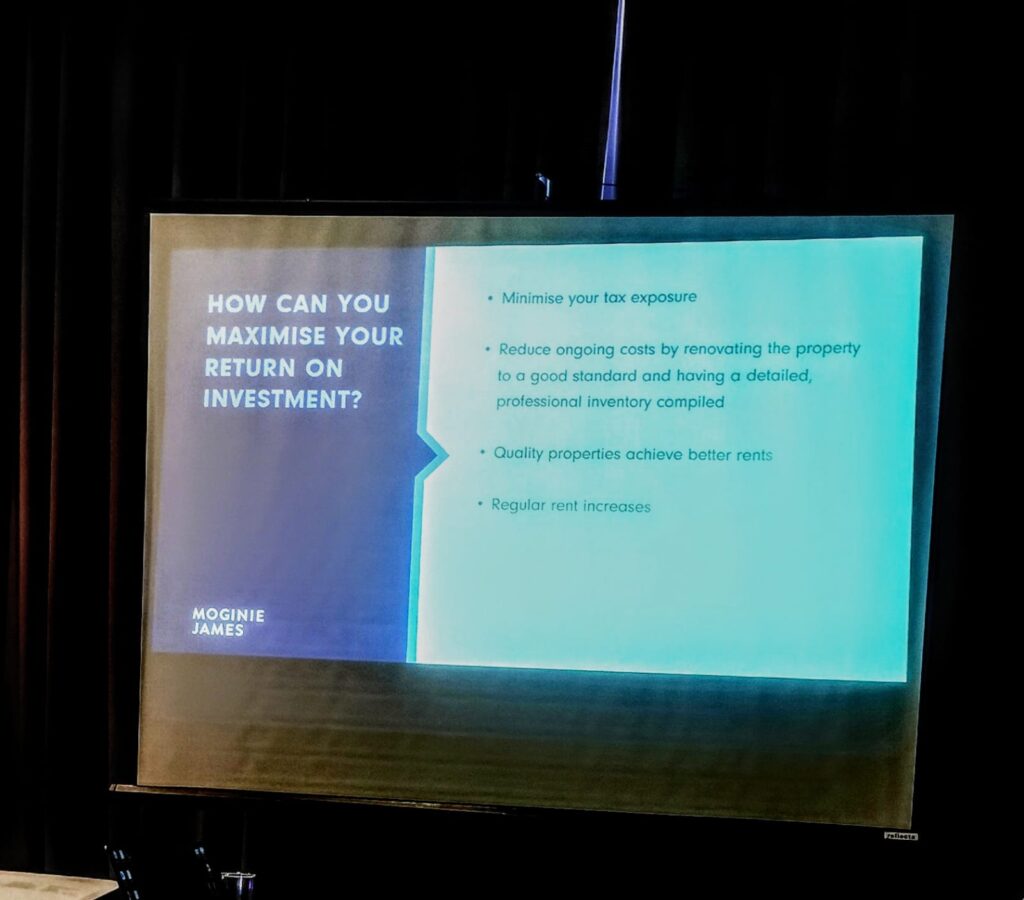
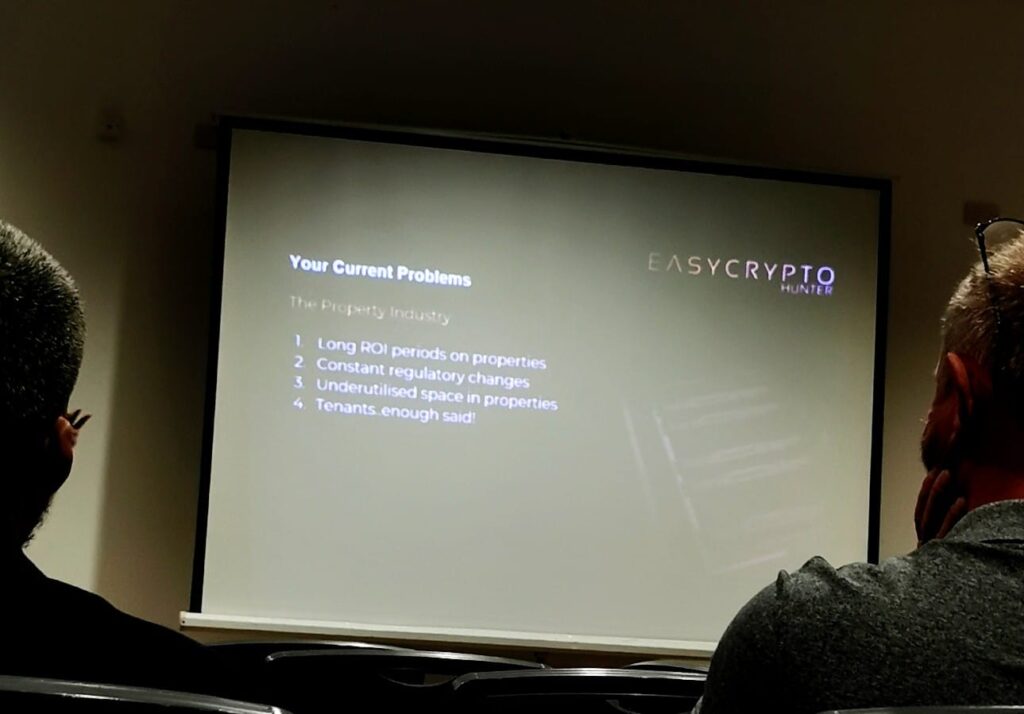
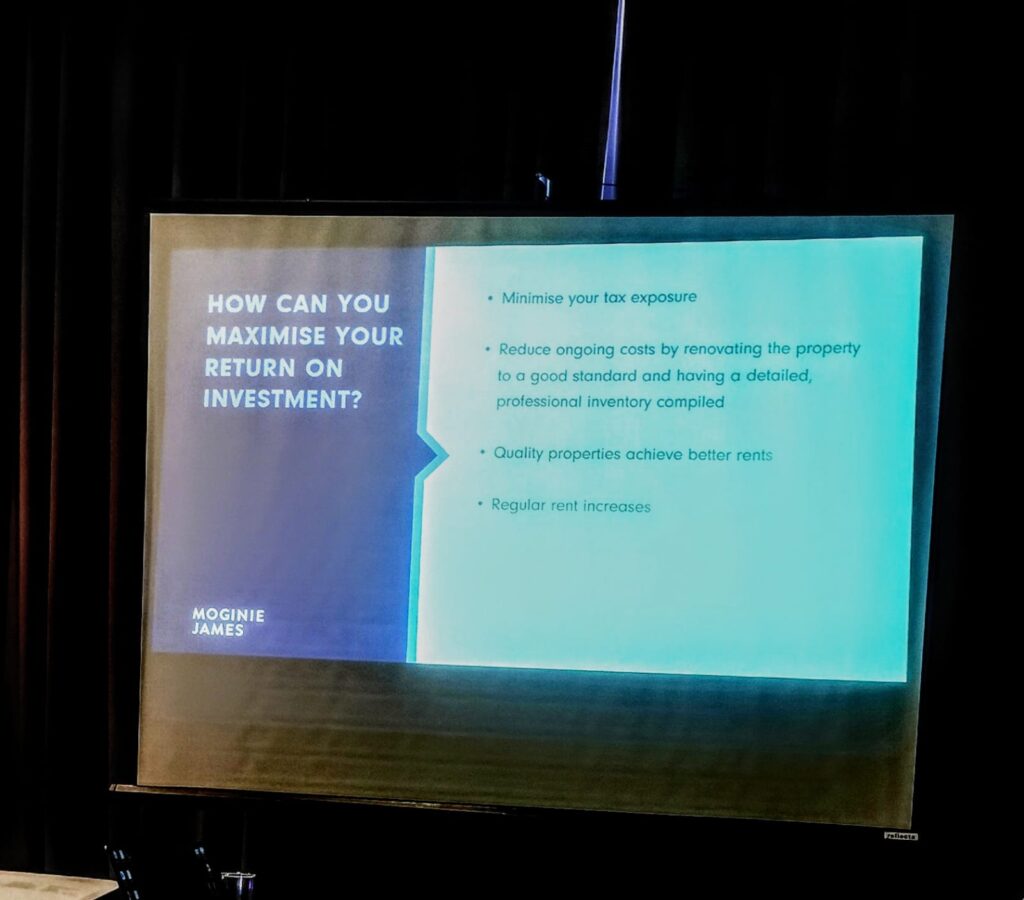
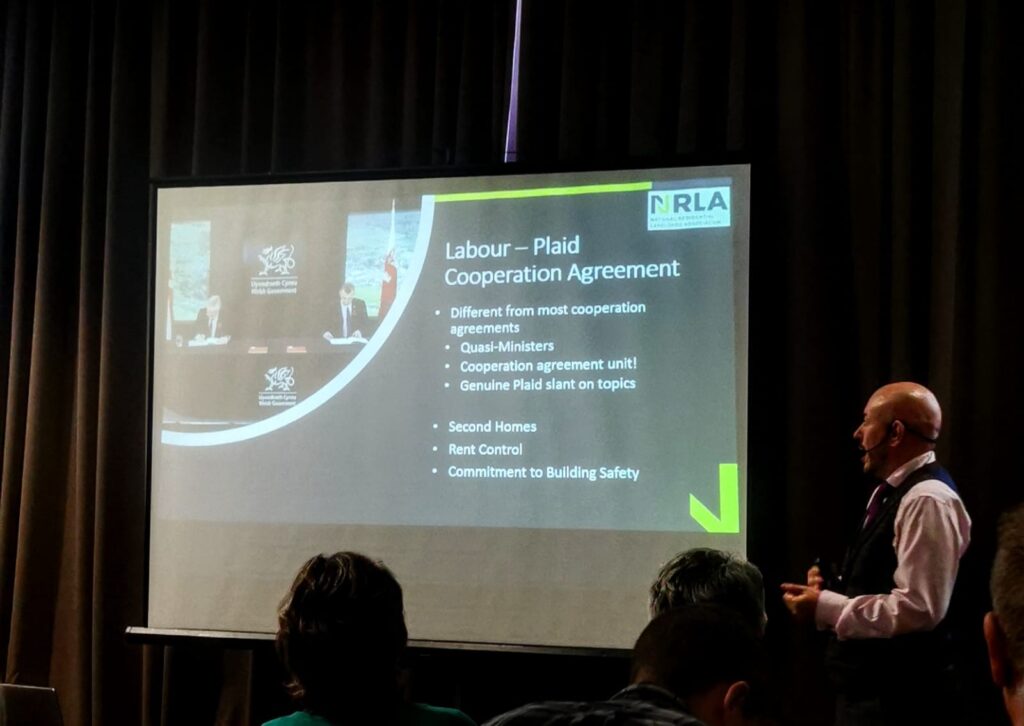
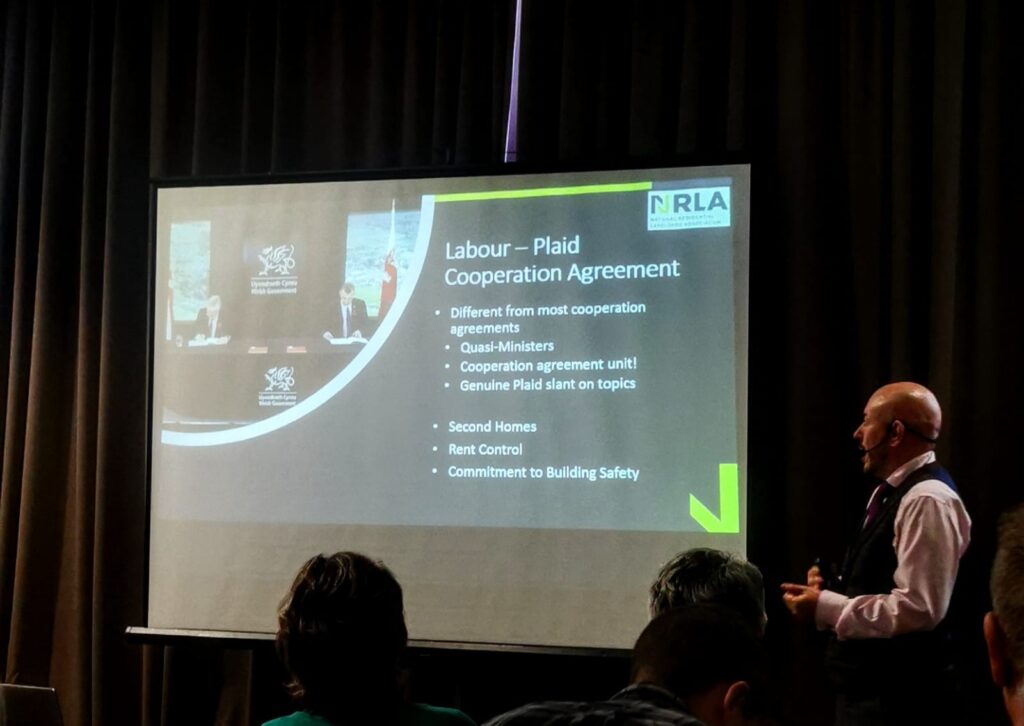
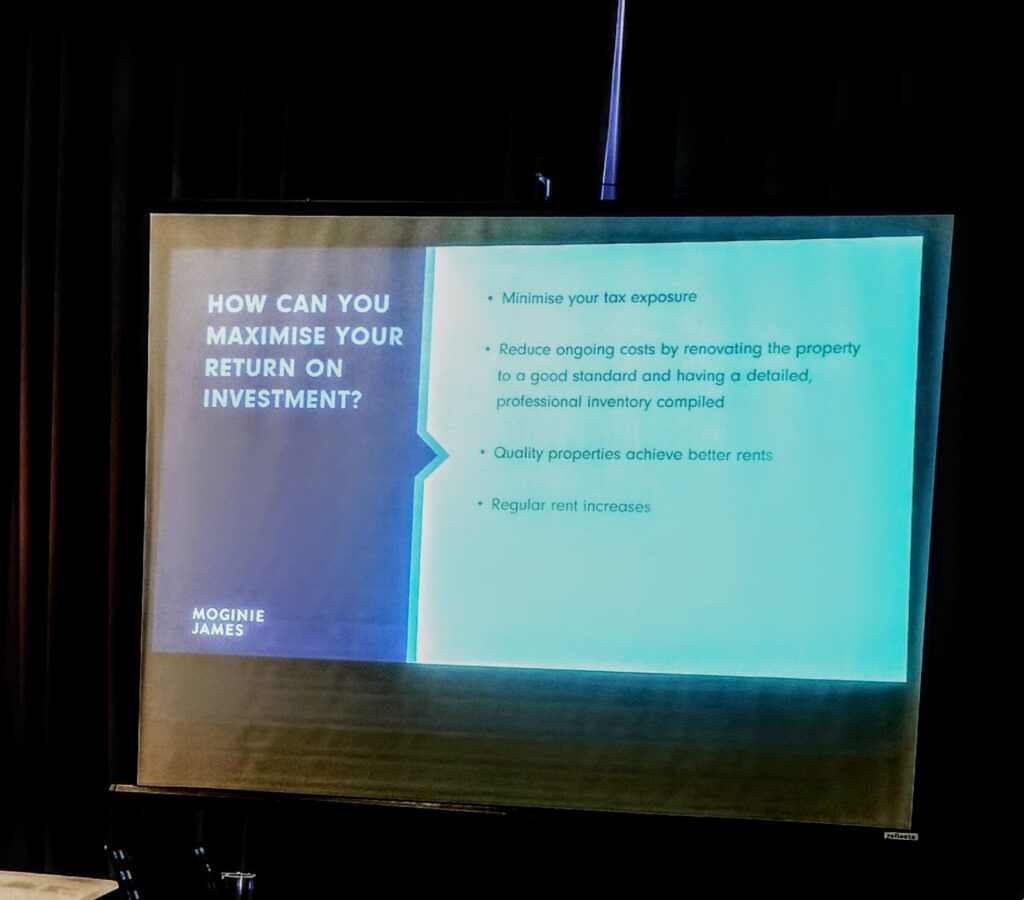
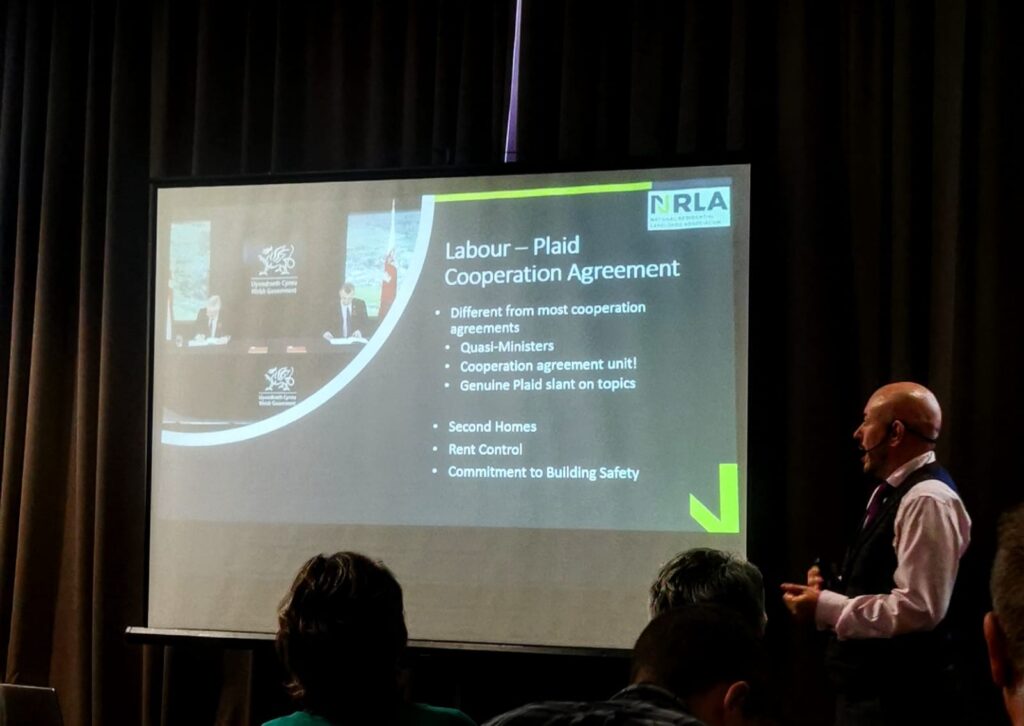


1 Comment
Comments are closed.